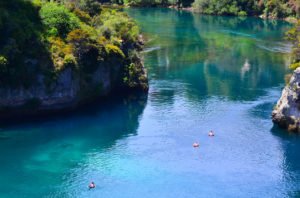Two environmental issues have dominated the news so far this election year, both focused on waterways, writes Massey University’s Associate Professor Ian Fuller in Hawkes Bay Today.
 An excerpt (read in full):
An excerpt (read in full):
Serious storms and flooding – and the resulting economic costs – have focused attention on the effects of climate change, while events like the Havelock North Water Inquiry have fuelled ongoing discussion about the state of our waterways.
The Paris Climate Agreement, which New Zealand has ratified, aims to limit global warming to no more than 2C to reduce the future risks of sea level rise and extreme weather events. But do politicians and the public really understand the future cost if this target is not achieved?
Important for New Zealand is the fact that as climate changes, so does the frequency and magnitude of floods and droughts. With current warming trends, we can expect a greater frequency and intensity of extreme events. This means more floods and, perversely, more droughts. Floods have always ranged in magnitude, measured in terms of their probability of recurrence (for example the “100-year” flood), but previously rare large floods are expected to become more common.
We have also built on our floodplains, drained our wetlands and cut down large tracts of forest, all of which serve to exacerbate both the flood hazard and the exposure of our towns to risk.
The political problem is that no matter what we legislate in terms of “greenhouse gas” emissions, the climate will continue to change because we are living with the consequences of a global phenomenon.
The issue for voters is that, to date, none of the major political parties has addressed the need to be proactive in responding to these consequences in a sustainable way.